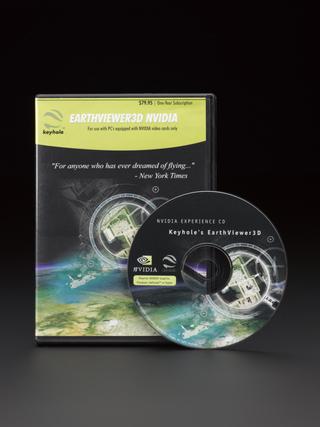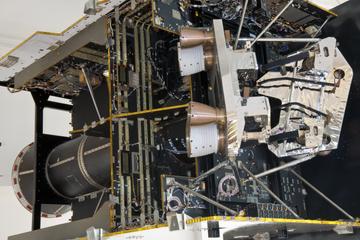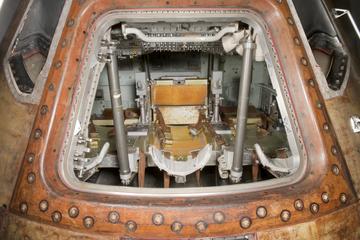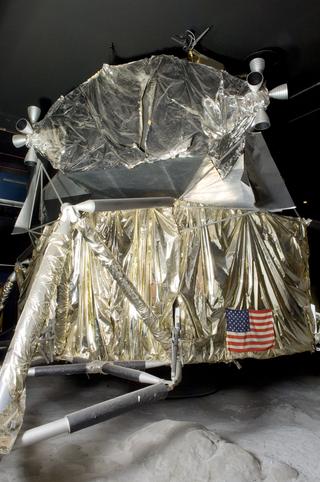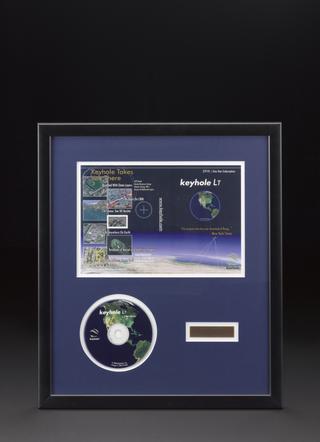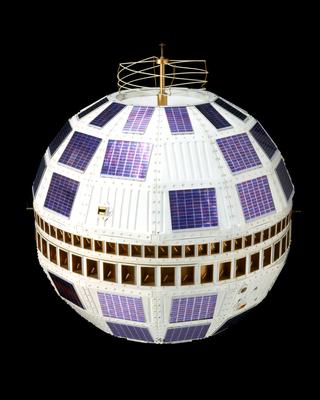
Moon rock




















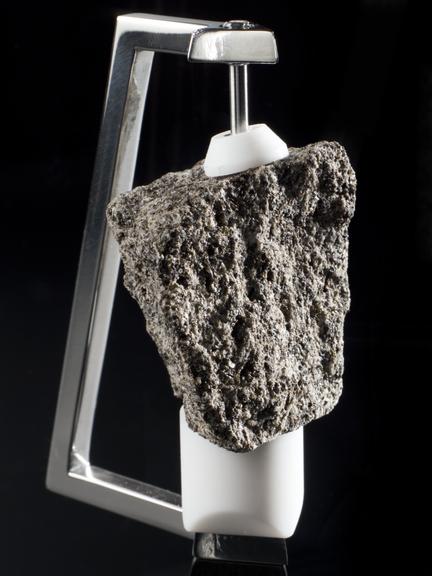










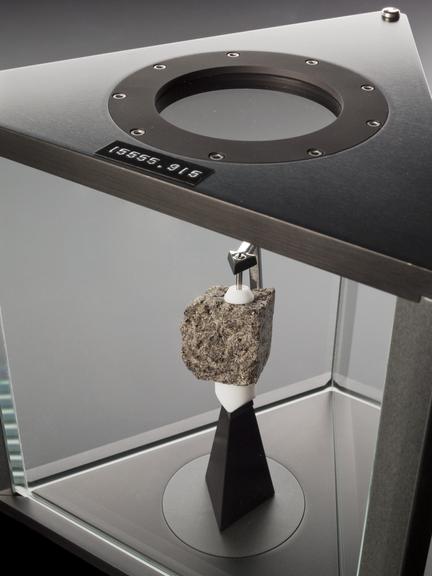
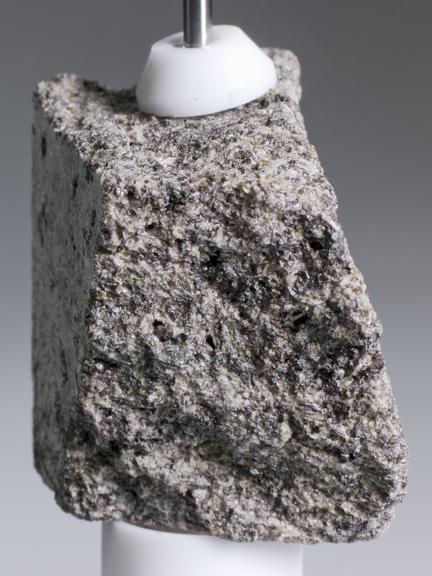




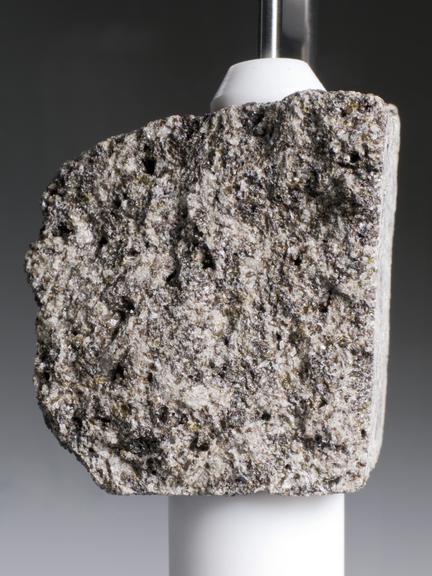
Piece of 3.3 billion year old olivine basalt from lunar sample 15555 - ‘Great Scott’ - the rock collected by astronaut David Scott near to the rim of the Hadley Rille Canyon in the Apennine foothills during the Apollo 15 mission to the Moon, 1971. Weight: 82.889 grams
This is part of one of the largest rocks to be collected by the Apollo astronauts from the lunar surface. The rock is called Great Scott and weighed almost 10 kg. It is a basalt which formed from lava that solidified 3.3 billion years ago. It is thought to have lain on the surface for approxinately 80 million years, possibly following it's being brought to the surface by the impact of an asteroid or comet. Such was the size of the rock that Astronaut Scott (hence its name) had to roll it up the leg of his space suit and then tip it into the Lunar Rover. All rocks brought to Earth by the Apollo astronauts were sealed and have never come into contact with the Earth's atmosphere. Were this to happen then they would oxidise and start to degrade. The sample on display is housed in a optical glass prism filled with dry nitrogen. It was prepared especially for the Science Museum.
Details
- Category:
- Space Technology
- Object Number:
- L2011-4042
- Materials:
- olivine basalt (rock)
- Measurements:
-
sample weight: .083kg
- type:
- lunar sample
- credit:
- Lyndon B. Johnson Space Center, National Aeronautics and Space Administration
